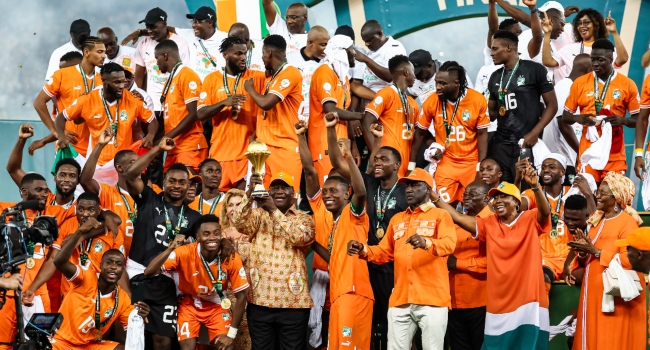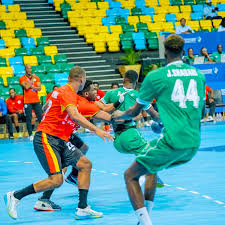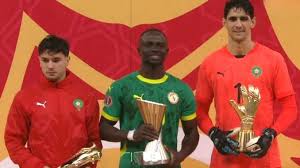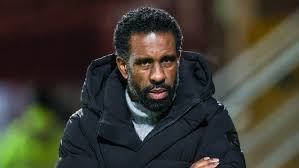
Ivory Coast Halt Super Eagles Flight To Win AFCON Trophy
Sunday's thrilling Africa Cup of Nations (AFCON) final match at the Alassane Ouattara Olympic Stadium in Ebimpe, Abidjan, saw the Super Eagles lose to the hosts, Ivory Coast.
Late in the first half, captain William Troost-Ekong, who had scored a penalty to decide the first meeting, rose to head in the opener for Nigeria, seemingly setting up a repeat of their 1-0 victory over the Ivorians here at the Ebimpe Olympic Stadium during the group stage.
But in the 81st minute, Haller converted Simon Adingra's cross, and Franck Kessie equalised just after the hour, setting off wild celebrations among the sea of orange in the Abidjan stands.
Due to their success, Ivory Coast is able to add this year's title to their possession of 1992 and 2015 titles, while this win also allows them to join Nigeria on three Cup of Nations triumphs overall.
The only teams with more championship victories are Egypt, Cameroon, and Ghana. The Super Eagles missed the chance to tie their rivals from Ghana on four occasions.
Over the past month, the Nigerian team, led by Osimhen, the current African player of the year, has appeared to be the most formidable team in the competition.
Ivory Coast became the first host nation to win the AFCON since 2006, but their sense of destiny was just too strong.
18 years ago, Didier Drogba captained the Elephants team that lost to Egypt in the final on penalties in Cairo. This time, he was one of the spectators to watch his nation pull off an incredible victory.
It is a remarkable accomplishment for a team that was about to be eliminated in the group stage after losing 4-0 to Equatorial Guinea on January 22.
That was their heaviest ever home defeat and the Ivorians then parted company with coach Jean-Louis Gasset, replacing him with Emerse Fae, a teammate of Drogba’s in 2006.
After that, they started an incredible comeback that saw them defeat Mali with a last-minute goal in extra time, eliminate holders Senegal on penalties, and defeat DR Congo thanks to a goal from Haller in the final four sets.
The stadium could hold 60,000 spectators, but many had to watch the game from vantage points on the stairwells because of their fervent support.
Anyone hoping to deflate the excitement may have brought up the fact that Cup of Nations finals are typically low-scoring matches.
The last 11 finals saw just 10 goals scored, with five of those ending in penalties following a scoreless draw.
In fact, Ivory Coast had not won any of their four prior final appearances; instead, all four ended in a draw until penalties were used.
It appeared set to be another nervy, low-scoring affair with chances few and far between early on.
But, the Nigerian custodian Stanley Nwabali denied the home team a tremendous opportunity on the 34th minute after Kessie found Adingra on the left.
Four minutes later, Troost-Ekong headed in from the edge of the six-yard area after Ademola Lookman's corner from the left was touched on. That proved to be crucial.
The Ivorians should be commended for rallying during halftime and giving Nigeria their best shot; earlier in the competition, they would have crumbled in such a situation.
Five minutes after the restart, Max-Alain Gradel's netbound shot was stopped in front of the line by Calvin Bassey. On minute sixty-two, Nwabali deflected a long-range piledriver by Odilon Kossounou around the post.
They pulled in level from the corner which followed that, as Kessie -– whose late penalty had rescued the hosts against Senegal in the last 16 –- appeared at the back post to head into the net.
It seemed inevitable that a second Ivory Coast goal would follow and it duly did with nine minutes of the 90 to play as Haller got his studs to Adingra’s cross and diverted the ball into the far corner.
Behind for the first time since their opening match, Nigeria could not react, and Ivory Coast held on for victory.





